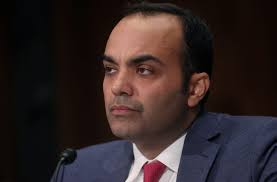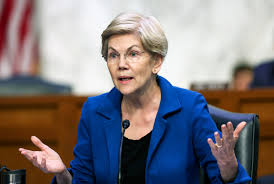The CFPB Reckoning; a Deepening Political Divide
- Marketing Team Compaytence
- Mar 21, 2025
- 5 min read

The Consumer Financial Protection Bureau (CFPB)—the agency responsible for protecting Americans from fraudulent, deceptive, and predatory financial practices—is facing unprecedented upheaval. With its leadership replaced, its staff reportedly being laid off in waves, and conflicting statements from the Trump administration about whether it will continue to exist, the future of the CFPB has never been more uncertain.
A Watchdog Born from Crisis
The CFPB was established in 2010 as part of the Dodd-Frank Wall Street Reform and Consumer Protection Act, a sweeping piece of legislation passed in response to the 2008 financial crisis. That crisis—sparked by reckless lending practices, complex financial instruments, and inadequate regulation—led to millions of foreclosures, job losses, and a global economic downturn.
In the aftermath, policymakers, led by then-Harvard professor Elizabeth Warren, pushed for the creation of a strong consumer watchdog to prevent banks, lenders, and financial institutions from engaging in the kind of predatory practices that had devastated so many households. The CFPB was designed to regulate everything from mortgages and credit cards to payday loans and debt collection, ensuring financial companies treated consumers fairly.
Since its founding, the CFPB has:
Returned nearly $20 billion to consumers through enforcement actions.
Imposed $5 billion in fines against companies violating consumer protection laws.
Penalized banks for fraudulently opening accounts and charging excessive fees.
Cracked down on abusive debt collection practices and payday lending schemes.
Protected U.S. service members from illegal loans.
Tightened regulations on Buy Now, Pay Later services to prevent consumer debt traps.
Banned medical debt from credit reports, preventing it from harming consumers’ financial standing.
While many consumer advocates have praised the CFPB’s actions, its critics—particularly within the financial industry—argue that the agency imposes unnecessary regulatory burdens on businesses and stifles economic growth. The CFPB’s funding structure has also been a point of contention, as it operates on $750 million per year drawn from the Federal Reserve rather than through congressional appropriations, making it less vulnerable to political shifts—until now.

Leadership Shakeup: Chopra Fired, Vought Takes Over
On February 7, 2025, President Donald Trump fired CFPB Director Rohit Chopra, who had been serving a five-year term. Chopra had made it clear that he would resign if asked, and upon his removal, he described his tenure as an "extraordinary privilege" and defended the agency’s work.
“With so much power concentrated in the hands of a few, agencies like the CFPB have never been more critical,” Chopra wrote in his farewell letter. “I'm proud that the CFPB has done so much to restore the rule of law.”
Following Chopra’s departure, Treasury Secretary Scott Bessent was initially appointed acting director, immediately freezing most CFPB operations. Bessent, a former hedge fund executive with experience at Key Square Capital Management and Soros Fund Management, was seen as a business-friendly pick for Treasury. However, his tenure was short-lived, and Russell Vought—former director of the Office of Management and Budget under Trump—was swiftly named as the new acting CFPB director.
Vought’s appointment signaled a sharp ideological shift. A longtime critic of government regulatory agencies, Vought has described the CFPB as a “woke & weaponized agency” and vowed to drastically change its structure.

Conflicting Plans: Is the CFPB Being ‘Streamlined’ or Dismantled?
The Trump administration’s approach to the CFPB has sent mixed signals. On one hand, Vought claims he is working toward a "more streamlined and efficient bureau" rather than eliminating it. On the other hand, Trump himself has openly discussed shutting the agency down.
“That was a very important thing to get rid of,” Trump told reporters, adding that his goal was to “eliminate waste, fraud, and abuse.” When asked if that meant dissolving the CFPB entirely, he responded, “I would say, yeah.”
Meanwhile, Elon Musk, whose Department of Government Efficiency (DOGE) has taken control of some CFPB operations, has been even more explicit about his stance. Musk, who has frequently criticized regulatory agencies, wrote on X: “CFPB RIP.”

Adding to the uncertainty, Jonathan McKernan, a former Federal Deposit Insurance Corporation (FDIC) board member, has been nominated by Trump to lead the CFPB permanently. McKernan resigned from the FDIC just before the announcement, but he will not take over until the Senate confirms him.
In the meantime, Vought has halted the CFPB’s funding draw from the Federal Reserve, effectively cutting off its operational budget. He has also expanded the freeze on all CFPB activities, including supervision, examinations, and stakeholder engagement.

Mass Layoffs and Anonymous Employee Testimonies
While Vought insists the CFPB is merely being “streamlined,” anonymous employee testimonies suggest the agency is being dismantled entirely.
One anonymous CFPB employee stated:
“My team was directed to assist with terminating the vast majority of CFPB employees as quickly as possible.”
According to sources within the agency, the layoffs are occurring in three phases:
First, probationary and term employees were let go.
Second, about 1,200 employees are being dismissed.
Finally, only a skeleton crew of a few hundred will remain.
Another anonymous employee, identified as Drew Doe, shared a disturbing comment allegedly made by a senior executive:
“CFPB will become a ‘room at Treasury, White House, or Federal Reserve with five men and a phone in it.’”
Employees have been told to stay home and not report to work, as the agency’s headquarters have been shuttered.
The Fight to Save the CFPB

The move to shut down the CFPB has sparked fierce opposition from Democrats and consumer advocates. Elizabeth Warren, one of the agency’s original architects, has been especially vocal:
"If you have a bank account, credit card, mortgage, or student loan, this is code red. I am ringing the alarm bell. Elon Musk and Russ Vought are trying to kill the CFPB. If they succeed, CEOs and Wall Street will once again be free to trick, trap, and cheat you."
A union representing CFPB employees has filed a lawsuit to block the agency’s shutdown, arguing that mass terminations violate federal employment protections.
Meanwhile, Republicans remain divided. Some support dismantling the agency altogether, while others—such as the Senate Committee on Banking, Housing, and Urban Affairs—argue that Vought will "bring responsibility back" to the CFPB without eliminating it.
What Comes Next?
At this stage, the CFPB’s fate remains unclear. While the administration appears to be systematically gutting the agency, legal challenges and political resistance could stall or block its complete elimination. The confirmation process for McKernan may also bring further clarity—though given Trump’s own statements, it remains to be seen whether the CFPB will even exist in its current form by then.
Compaytence – Your Partner in Global Payments & Financial Stability.
As regulatory oversight shifts, businesses and consumers alike need to stay informed and prepared. Whether new regulations arise or existing ones fade, having a strong financial strategy is essential.
At Compaytence, we offer reserve recovery, payment service provider (PSP) setup, and global payment solutions to help businesses stay ahead—regardless of what happens to the CFPB.
For assistance in optimizing your financial operations, reach out to our team today.




Comments